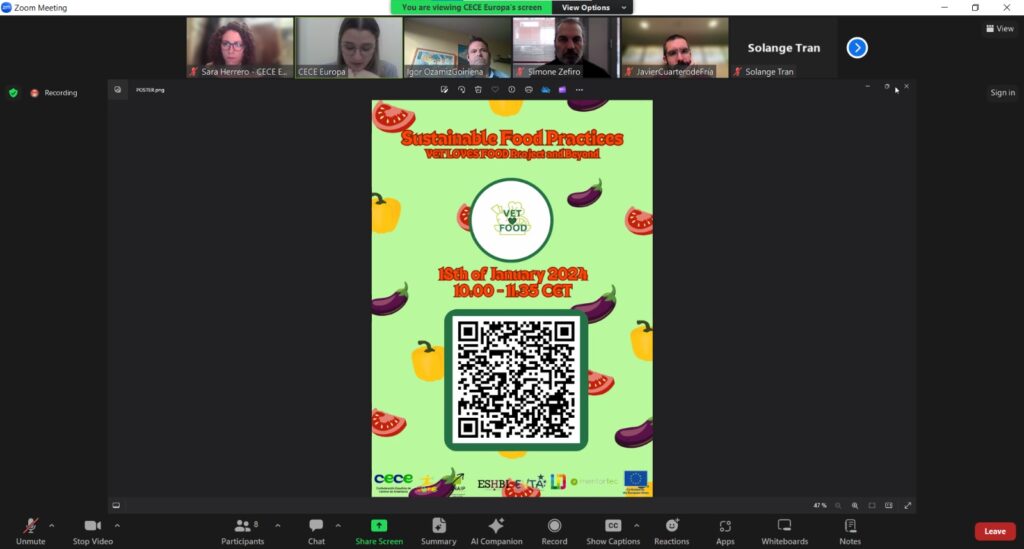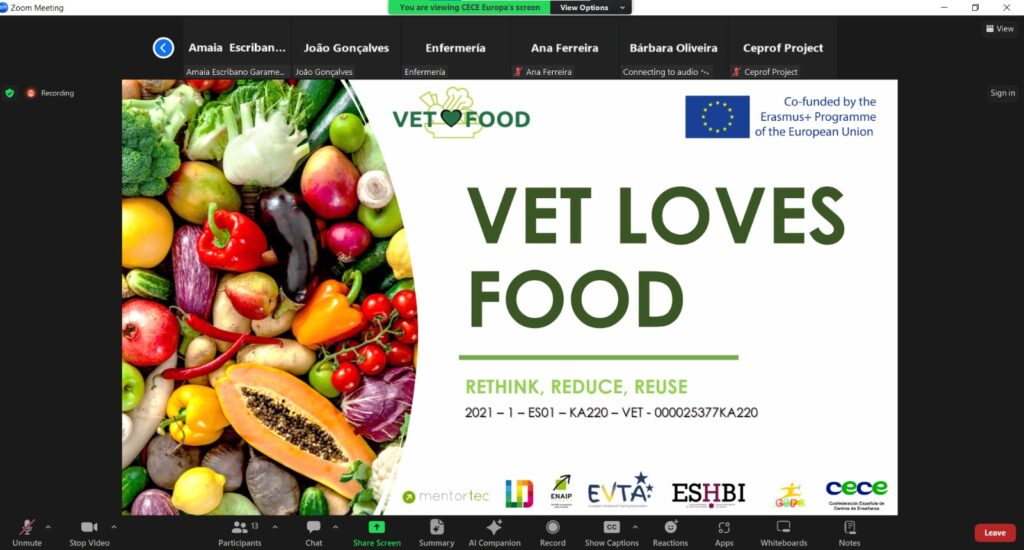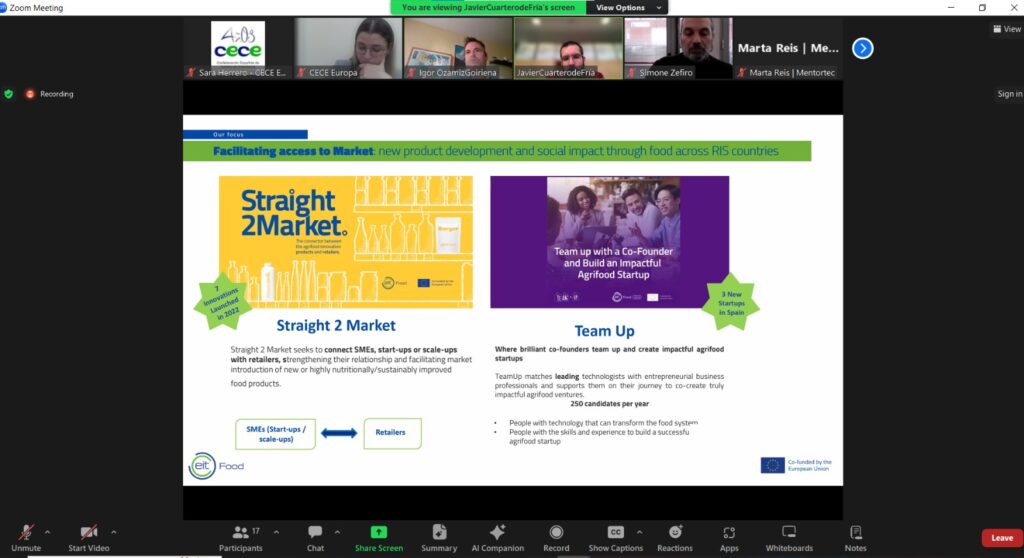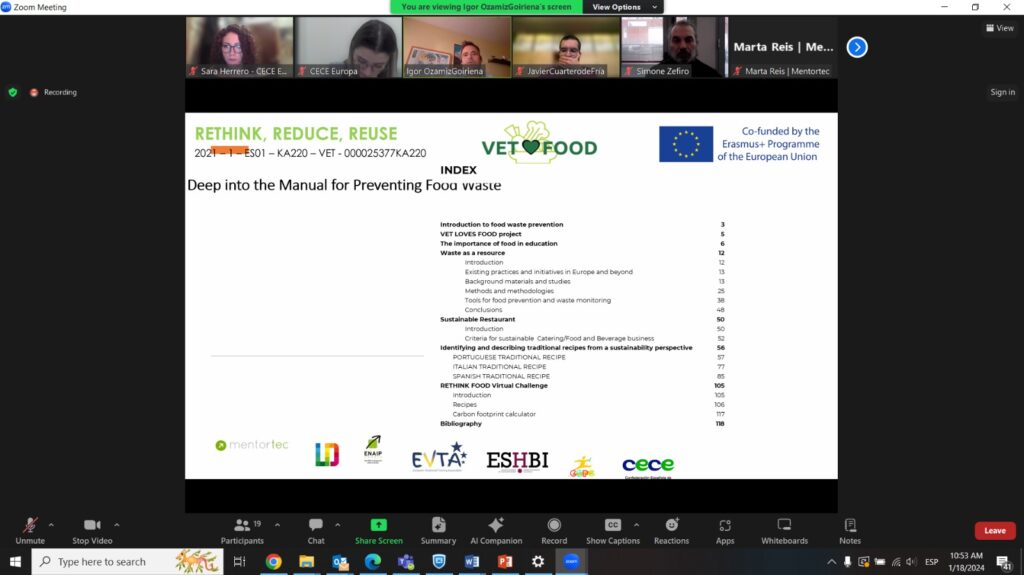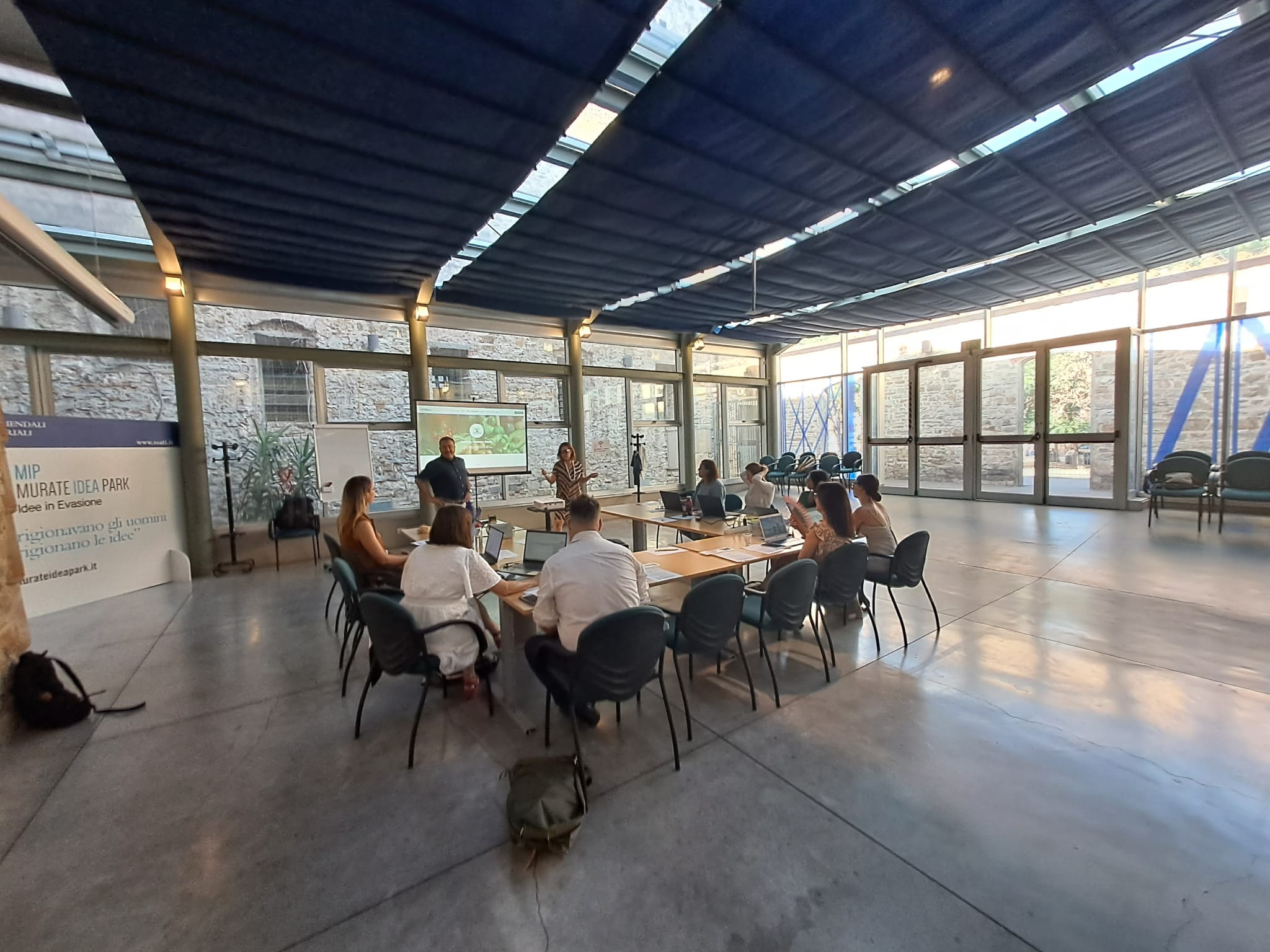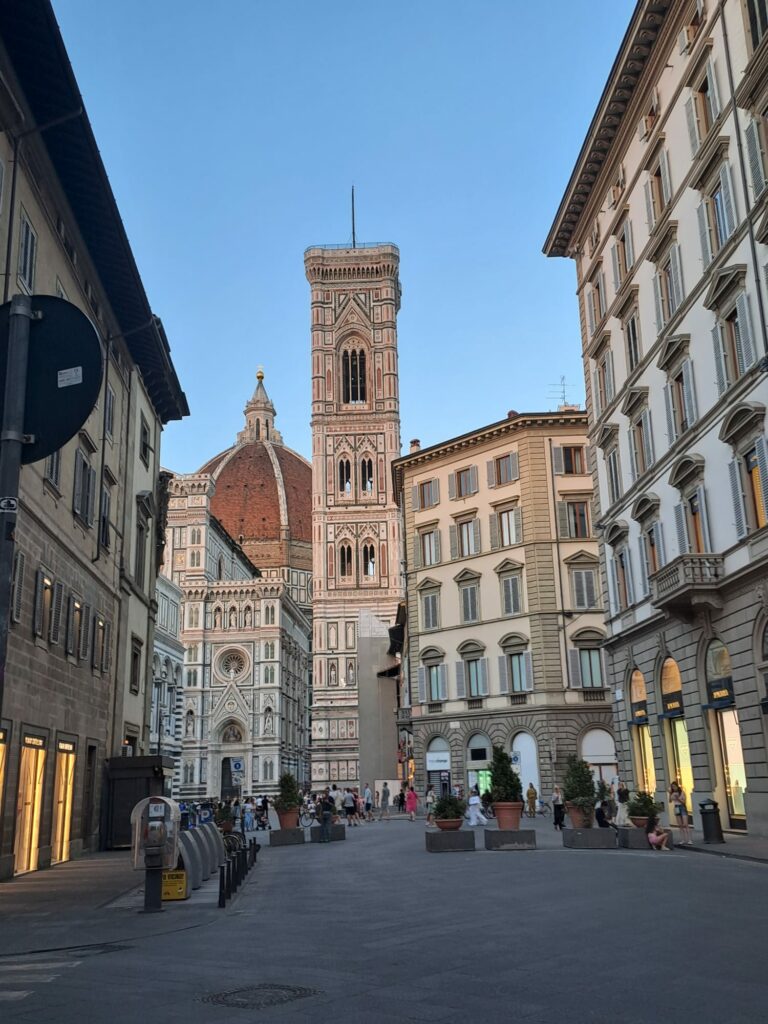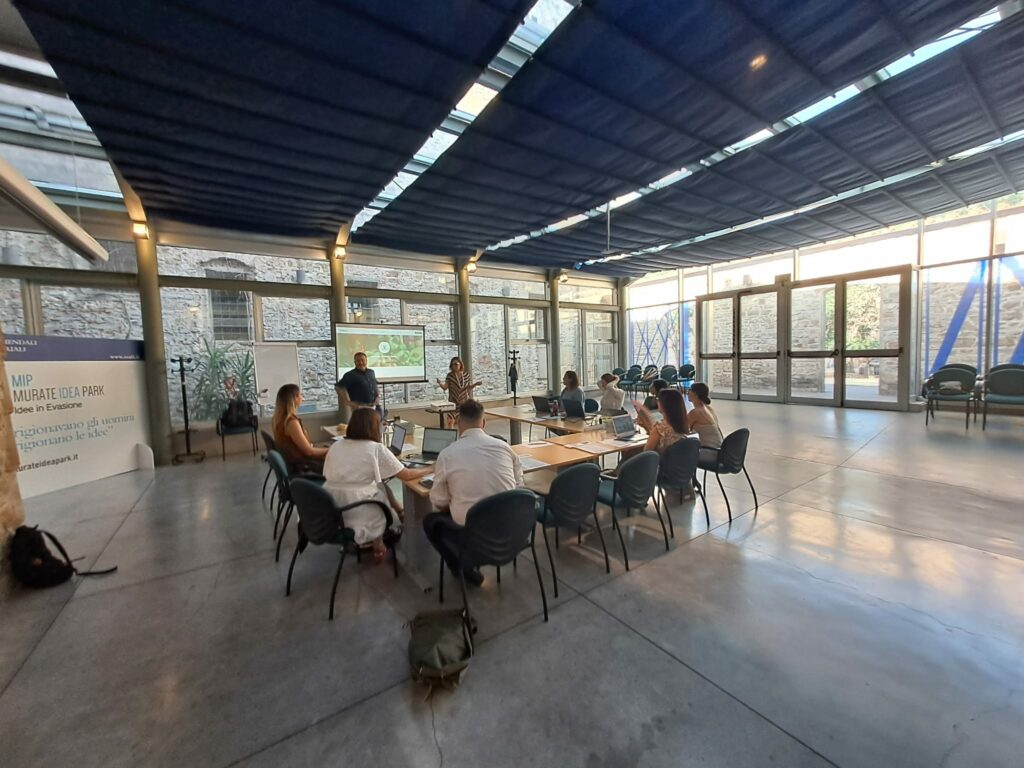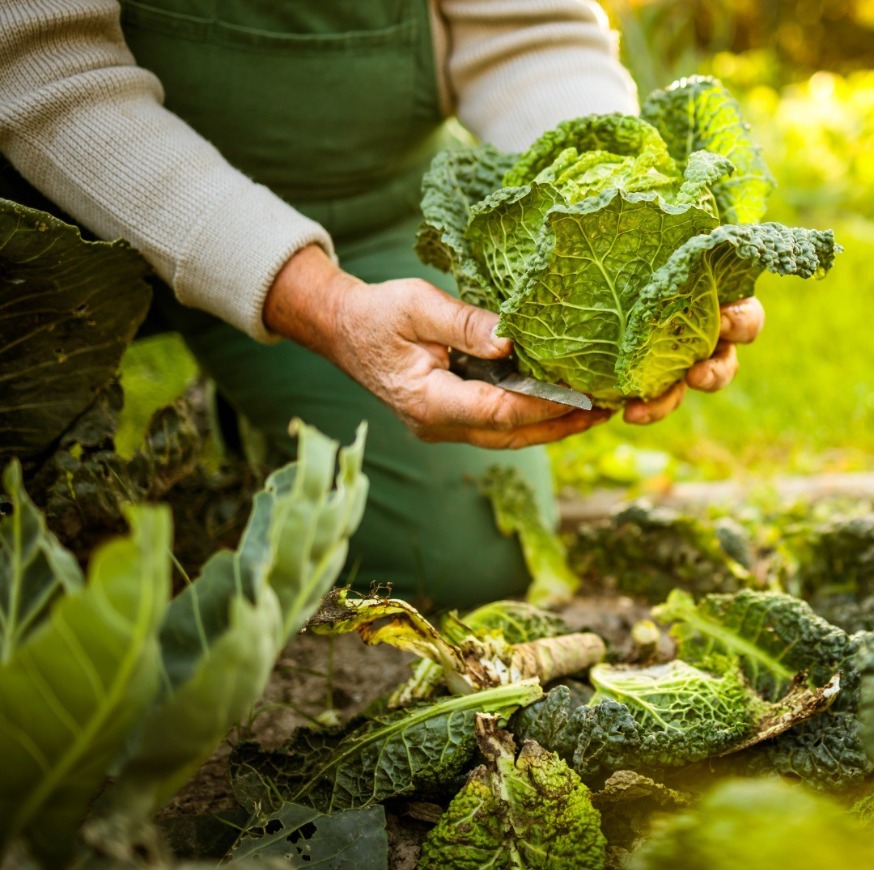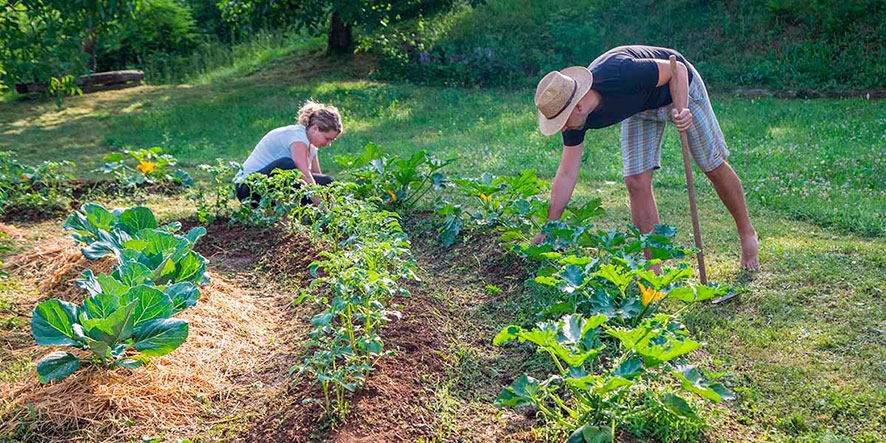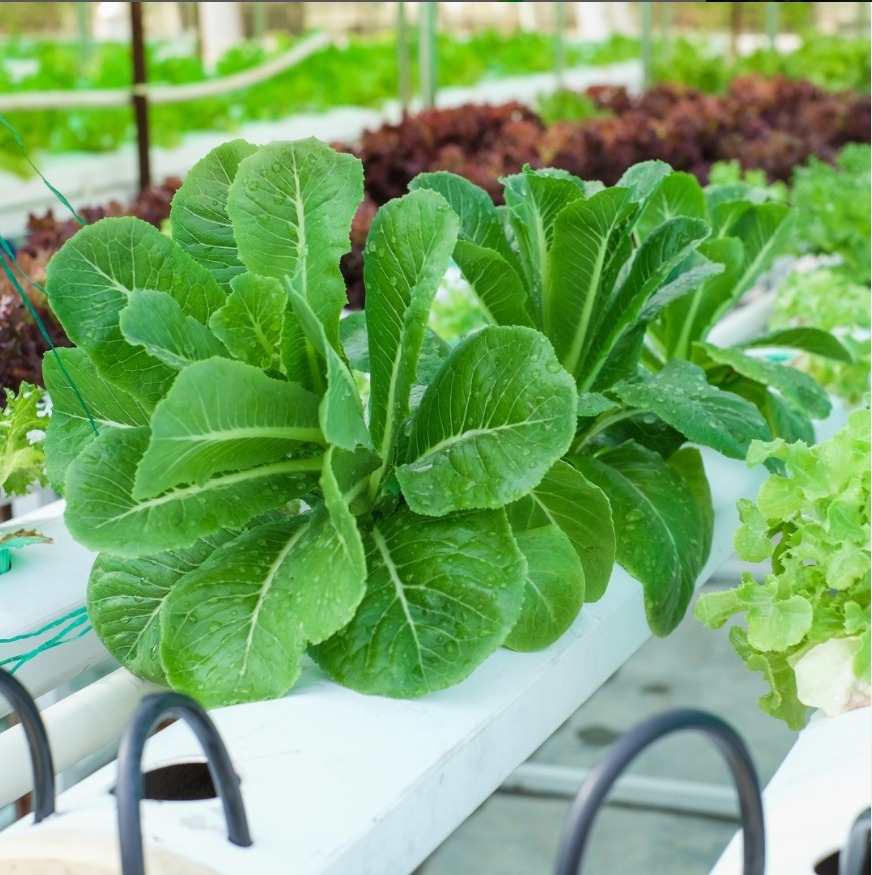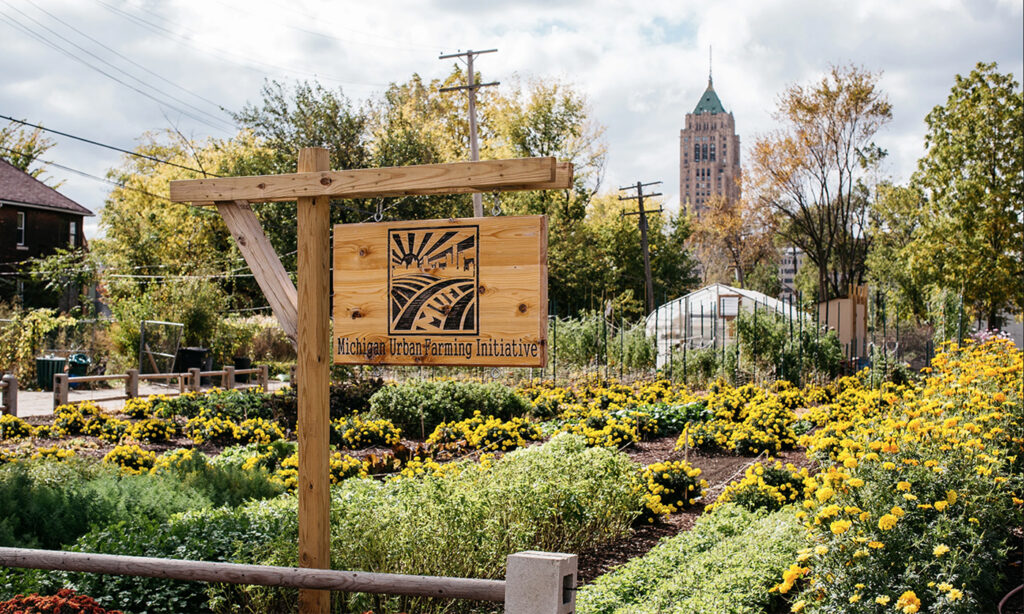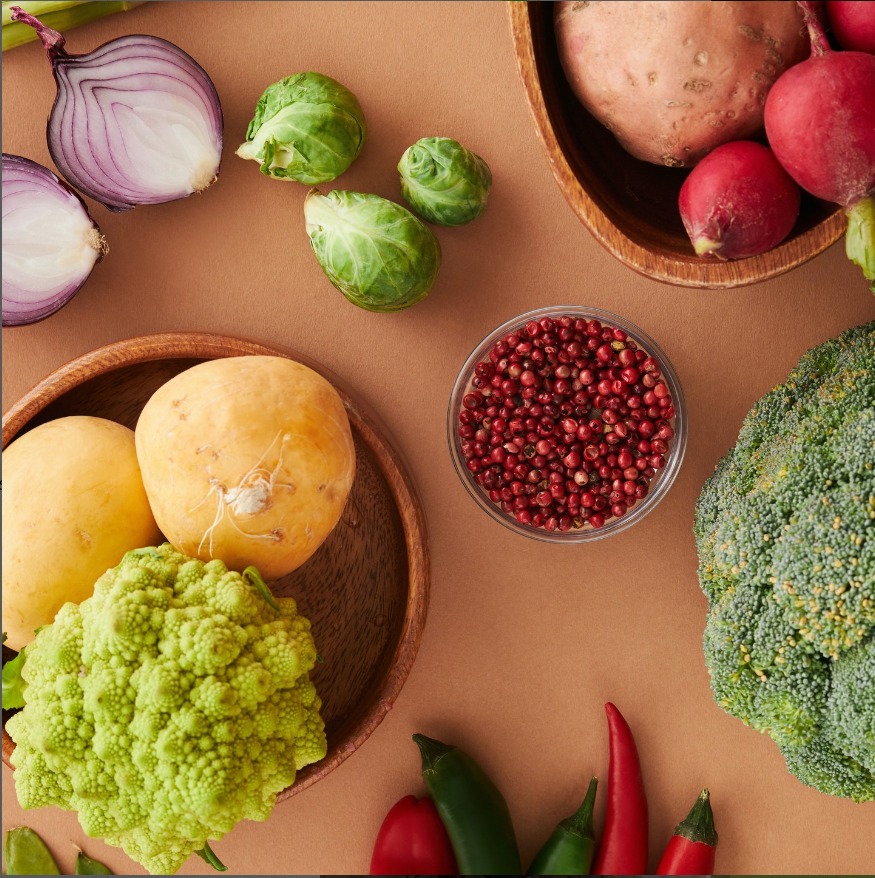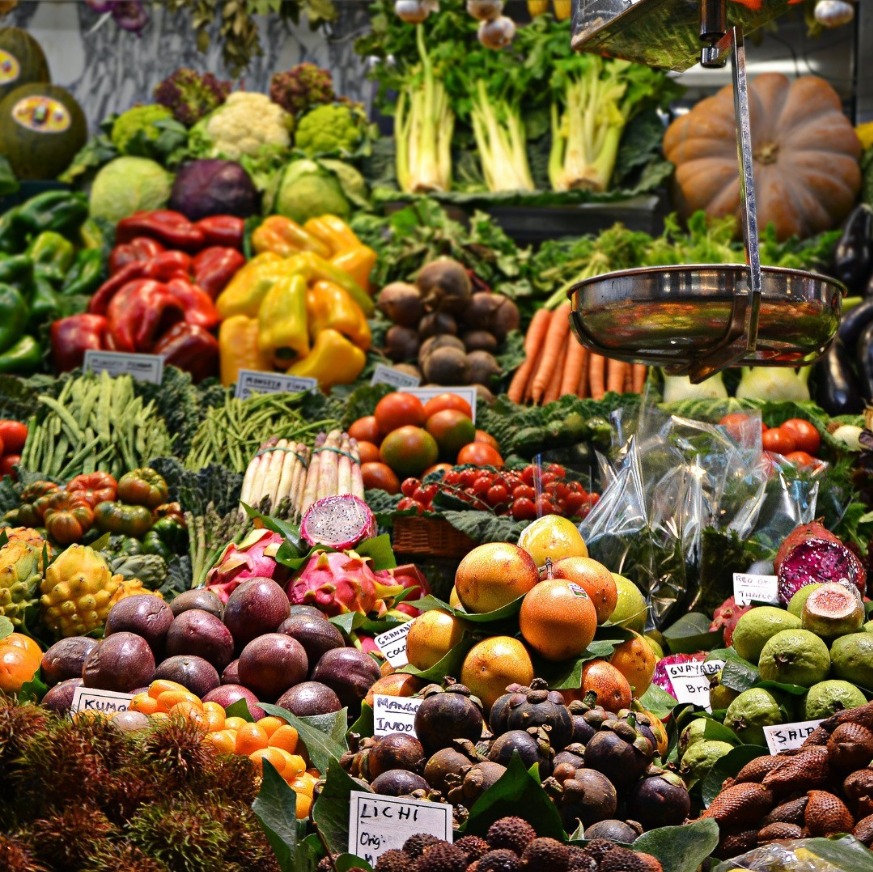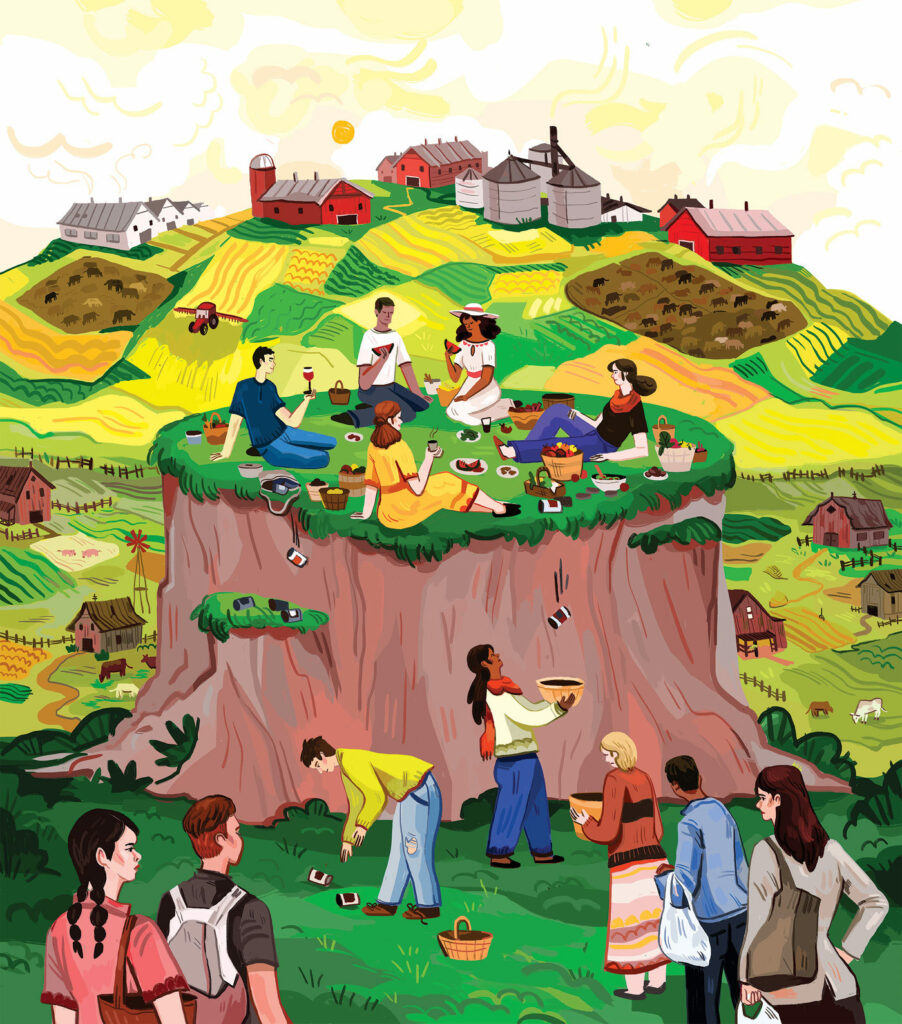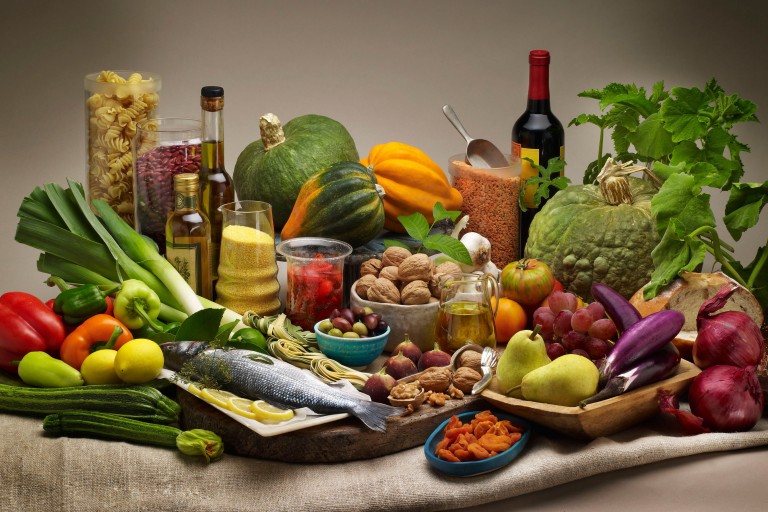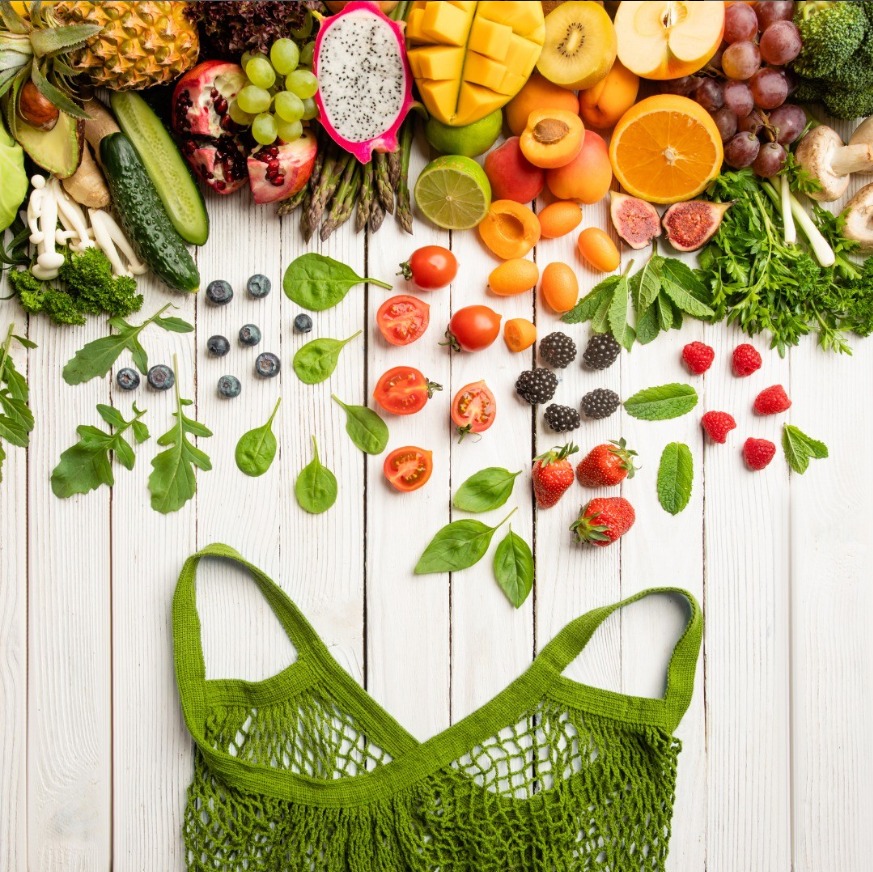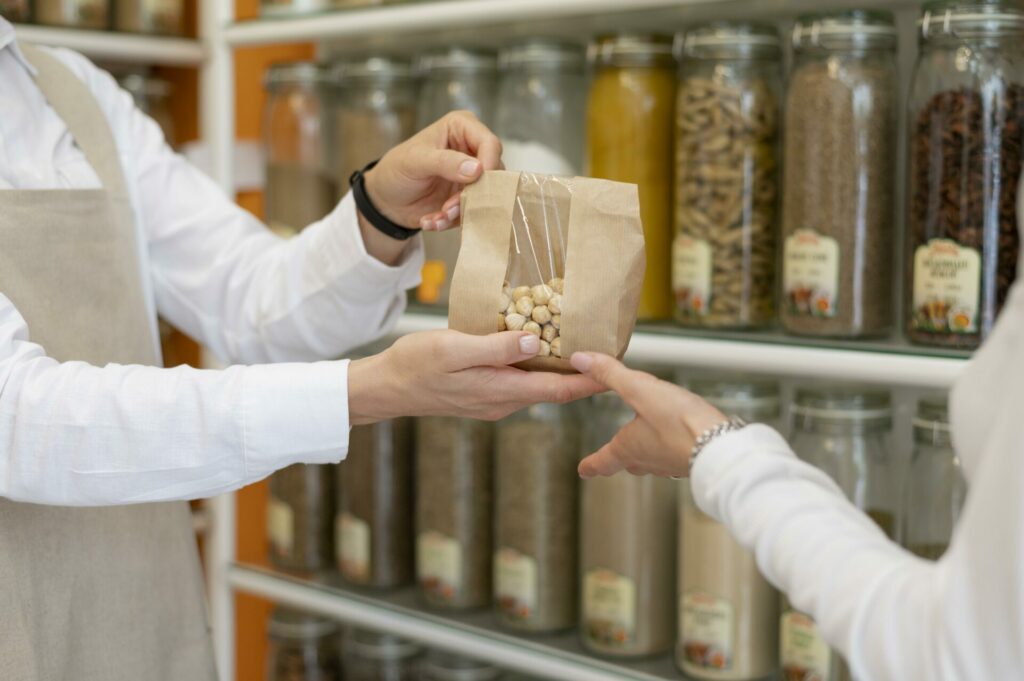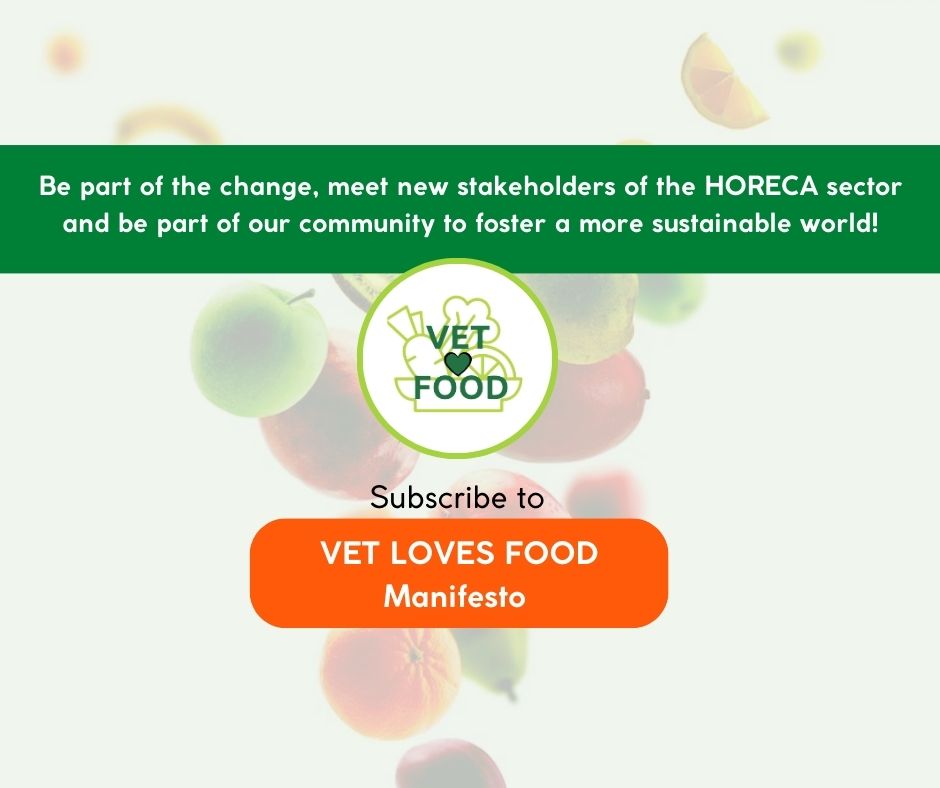“Cultivating a more sustainable future: Greening the HORECA sector through vocational training.”
Last Thursday, April 11, the Final Conference of the VET LOVES FOOD Project took place in Brussels: “Cultivating a more sustainable future: Greening the HORECA sector through vocational training.” This, whose full name is Rethink, Reduce, Reuse – VET LOVES FOOD, is a project co-financed by the Erasmus + program of the European Commission, framed within key action 2 of this program: cooperation associations. VET LOVES FOOD ends in May 2024 and has been coordinated for the last two years by the European department of CECE – Spanish Confederation of Teaching Centers. The project has, in addition to CECE, partners from Italy (ENAIP Veneto and Learningdigital), Portugal (CEPROF and MENTORTEC),Spain (Bilbao Higher School of Hospitality – ESHBI)and Belgium(EVTA).

This consortium has worked together for the last two years, within the framework of VET LOVES FOOD, with a common objective: to develop green skills in food waste prevention in vocational training, specifically within the hospitality sector.
All the work of the VET LOVES FOOD consortium was reflected in the Final Conference of the project, in which the four main results developed within the framework of this project were presented. We tell you a little more about the Conference!
The VET LOVES FOOD Final Conference opened at 16:00 (local time) with the intervention of a special guest, Giulia Bizzo, Food Systems Policy Assistant at the European Comission. Giulia addressed the importance of the fight against food waste in the European context and pointed out the most relevant measures that the European Commission was taking to prevent and manage this type of waste.

After Giulia, there was a brief summary of the VET LOVES FOOD project, provided by Lucrezia Palladini, coordinator in the European department of CECE.
Immediately afterwards, the different partners responsible for each of the results developed by the consortium explained one by one. Luisa Previati, project manager at ENAIP Veneto, presented the first result of the VET LOVES FOOD project, a VET Curriculum aimed at promoting green skills in the agri-food sector. The second result was presented by Igor Ozamiz, CKO of the Bilbao Higher Hospitality School, who spoke about the VET LOVES FOOD Hands-on Manual against food waste. The manual was followed by the presentation of the third result, the VET LOVES FOOD hub and the e-learning course “From Waste to Taste”, within the framework of the project, aimed at students and trainers of vocational training in the hospitality and oriented sector to provide knowledge and tools on how to implement green skills and prevent food waste in hospitality. A dynamic presentation provided by Stefano Tirati, CEO of Learningdigital. To close the presentation of the results of VET LOVES FOOD, Sara Herrero, assistant in the European department of CECE, closed this part of the Conference by giving a few touches on the fourth and final result of the project, the VET LOVES FOOD Replication Path, a document with recommendations on how to use and replicate the VET LOVES FOOD project model in the context of each of the member countries of the European Union.


On the other hand, Carolina Vilaça and Marta Reis, European Union project managers at CEPROF and MENTORTEC, respectively, were in charge of presenting the Impact that VET LOVES FOOD has had so far on the different target groups of the project.

Once the results were presented, the Ceremony culminated with a round table moderated by Alessandra Frasseto, responsible for policies and projects at EVTA, in which several participants in the different project activities explained what their experience had been and what the impact of VET LOVES FOOD in your everyday life. We have the testimonies of Simone Carone, trainer in Zefiro – Società Cooperativa Sociale, representing the winners of the “RETHINK FOOD” virtual challenge; by Miguel Alves Henriques, student at CEPROF and participant in the Joint Training Event that took place at the ENAIP Veneto Conegliano facilities on the occasion of the piloting of the VET LOVES FOOD hub and e-learning; and, finally, we have the testimony of Mattia Callegaro, trainer at ENAIP Veneto, representing the winners of the “Traditi-On, Waste-Off” Hackathon.

At the close of the Ceremony, and as a culmination of the event, a networking event took place in which attendees were able to taste the winning menu of the Hackathon “Traditi-On, Waste-Off”, which consisted of a variety of leek and potato with Mascarpone cream, fried artichokes and thyme panure as an appetizer; and, as a main course, an artichoke cream encompassing gnocchetti of stale bread with saffron and julienned leek with lemon.

The VET LOVES FOOD project has given us many good practices on how to put green skills into practice and prevent food waste in our daily lives. The project ends, but its trail is still present in those people who have adopted its model.
Among the most notable news of the project:
- The VET LOVES FOOD Replication Path will soon be available on our website in Spanish, Italian, Portuguese and English.
- Those of you who were not able to attend the Final Ceremony, in person or online, will soon be able to enjoy the recording of the Ceremony by going to the events section of our website.
Don’t hesitate to take a look at our resources! Go into :https://vetlovesfood.eu/
Don’t miss the latest news from VET LOVES FOOD! Follow us on Instagram: https://www.instagram.com/vet.loves.food/
You still have time to be part of the change! Sign our Manifesto and become an ambassador of VET LOVES FOOD! https://vetlovesfood.eu/manifesto/
And remember: when you rethink, reduce and reuse cooking in your daily life, life tastes better!


